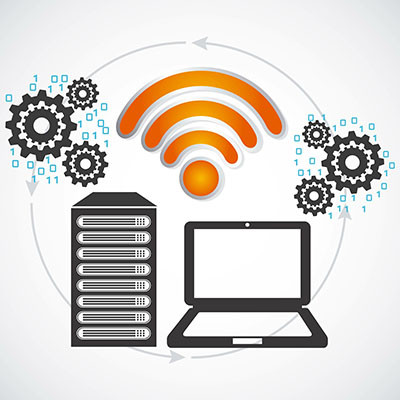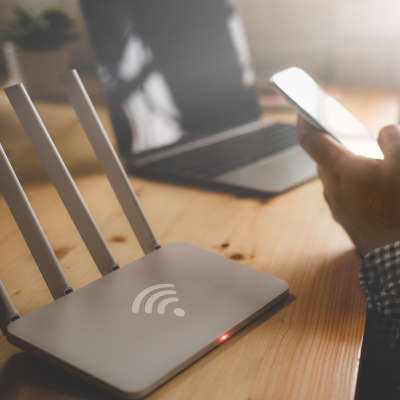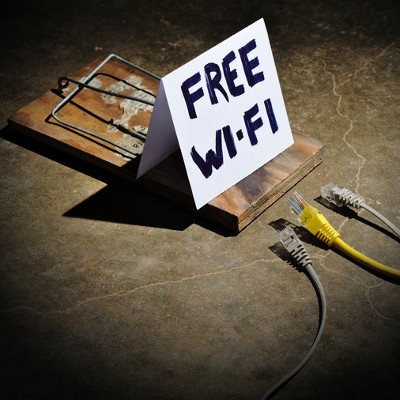Everyone associated with your business is constantly connected to the Internet. You know how you can tell? Tell them the Wi-Fi is down for a couple of hours and see what their reaction is. With so much weighing on your ability to connect to the Internet you have to make a decision: Do you wire your connections to the web or do you deploy strong Wi-Fi and try to do it that way?
Argentum IT LLC Blog
Your business has to promote security whenever it can. In terms of keeping your wireless connections secure, the thought behind it is that if unauthorized people and machines can access your network without protections, they can do what they please with the data on the network. This is a big problem. Let’s go through a few things you need to consider to keep your wireless network secure.
Your business depends on its bandwidth and its Internet connection to remain productive, part of which means ensuring that you have a reliable and stable wireless connection. How can you set up your network so that it is optimal and efficient? We have some thoughts on the matter and want to share them with you.
With so many wireless networks available to connect to, it’s no surprise that wireless security is a cornerstone of working while on the go. We thought it would be helpful to have a list of best practices to help ensure your wireless networks, and the devices connecting to them, are as secure as possible.
Today, most businesses (and homes) depend on their Wi-Fi. It provides a lot more flexibility and value than a wired connection in many instances simply because people use a lot of wireless devices today. Today’s wireless internet is easier to install, is faster than ever, and works to protect network security better than ever before, once it is set up correctly. Today, we’ll give you a few tips you should know on how to successfully implement a Wi-Fi platform.
The way your business uses and accesses data is changing. A short time ago, you couldn’t imagine that you would have a comprehensive strategy to keep data secure when sending and receiving it wirelessly, but today wireless transmission methods have become more secure, reliable, and fast. This month, we’ll take a look at the difference between wired and wireless connections in the modern business.
Chances are you’re still spending a lot of time at home, and a lot of that time is being spent on the Internet. With so many still working remotely, and many educational institutions continuing remote learning, the strength of a household’s Wi-Fi signal is going to be crucial. We wanted to offer you some tips to help you maximize the signal strength of your router.
Small business owners are always on the lookout for that “special something” that will bring added value to their offering. In 2020, with COVID-19 sticking around, it has been difficult for businesses to commit to any new investments. To keep revenue coming in, a lot of businesses have been forced into allowing their staff to work remotely. To make this work, many have rolled out VPN for their business, but seemingly like everything else, there are very serious risks about leaning too heavily on your VPN. Let’s take a look at some of these risks.
The establishment of Wi-Fi as a tool has been revolutionary for society. With mobile carriers instituting data caps, and more people using mobile devices to access the ever-increasing ecosystem of content, Wi-Fi hotspots have become more than just useful tools, they have become a staple for businesses and individuals from all over the world.
Someday, you’re going to encounter a situation where you absolutely need Wi-Fi and the only option will be a public connection. This becomes rather problematic, as a public Wi-Fi connection is far from secure for business purposes. A method to maximize productivity without compromising security is needed for every business that has employees working out of the office, but what’s the best way to do it?
Back to school is upon us and then it’s a hop, skip, and jump until the holidays arrive. With more companies allowing their employees to work remotely, holiday travel will mean that people are going to be taking their work on the road with them. Preventing credit card and identity theft has been a priority for shoppers during the season for many years. It’s important that the same security considerations be given to technology being used for business while traveling.
The dreaded Wi-Fi dead zone: it’s a place where all wireless signal drops or becomes unstable, even though you could move three inches in either direction and you’ll have no problem. In this case, there’s usually something interfering with the signal, be it a wall or another device. We’ll walk you through some of the basic troubleshooting tips that you can use to resolve your connection troubles.
Wireless Internet signals, referred to most commonly as Wi-Fi, are commonplace in every office. Even organizations that don’t often need access to the Internet, like restaurants and coffee shops, have wireless connections available for customers to use. However, just because you can connect to free Wi-Fi, doesn’t necessarily mean that you should.













